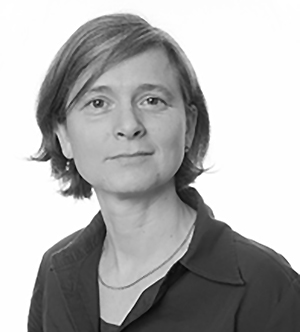 The ethics of Yahya ibn Adi. An ethical debate between Jewish, Muslim and Christian thinkers in Baghdad of the early middle ages? (working title)
The ethics of Yahya ibn Adi. An ethical debate between Jewish, Muslim and Christian thinkers in Baghdad of the early middle ages? (working title)
Baghdad of the 10th century – a melting pot of cultures, religions and scientific scholarship, as well as the centre of governance of the Abbasid Caliphate and the Buyid rulers– seem to offer the intellectual platform for some influential philosophers to conceive elementary writings of moral philosophy. The contemporary thought in those days was reflected in a brisk culture of polemics between and within different religious groups. The reception of Hellenistic philosophy among others made up the methodical as well as the topical setting. Thereto pertaining the gnomological collections (moral quotes and anecdotes of the ancients), moral tractates attributed to Galen and Aristotle’s Nicomachean Ethics, which where translated from Greek and Syriac into Arabic as early as the 9th and the beginning of the 10th century. At least since the dissemination of these writings among the dependants of the Arabic speaking community, one can assume a debate in moral philosophy, which reached far beyond the various circles of scholarship.
My research interest focuses on the question how ethical thought was formulated by different representatives of various denominations. By Yahya ibn Adi (893-974), a member of the Syrian Orthodox Church and his famous contemporaries al-Farabi (ca.870-950), the Muslim polymath and Saadya Gaon (Said ibn Yusuf al-Fayyumi, 882-942), the Jewish philosopher, grammarian and religious leader, three protagonists are found, which quintessentially express this historical moment. Their ethical writings vary not only in regard of the form but also in the exposition of their moral respective ethical beliefs. While al-Farabi for example elaborates on the intellectual/mental foundations of an ideal polity, Yahya ibn Adi identifies certain virtues, which man has to form and educate because of his purpose as man. Saadya Gaon finally, assumes the proportionate strife after temporarily/worldly goods – among them he names the accumulation of money and also the acquisition of wisdom – which might ideally lead man to the insight and knowledge of truth.
The objective of the project is to receive a differentiate picture of this historical ethical debate – which trespassed cultural and religious boundaries – by means of analyzing selected writings. The focus lies not in ascertaining and verifying direct contacts between the philosophers, but to investigate on the indirect references and demarcation in their writings, as for example their lines of justification for moral principles and their methodical approach. The attention is also directed towards the issue to which extent universal interpretative patters were introduced in relation to denominational views. Therewith arises the question, if and in which way does this early medieval discourse of moral philosophy display approaches of universal ethics? The relation in respect to the actual debate about the legitimisation of universal norms and cultural values justify the relevance of this project, but not the attempt of a potential solution for the or our contemporary discourse of moral philosophy.
The project is considered to accomplish a contribution to the medieval history of moral philosophy. Its research field is intercultural and scientific interdisciplinary arranged. The expected results might be of relevance for the disciplines of Islamic Studies, Jewish Studies, Practical Philosophy, Religious and Social Philosophy and Theology.

